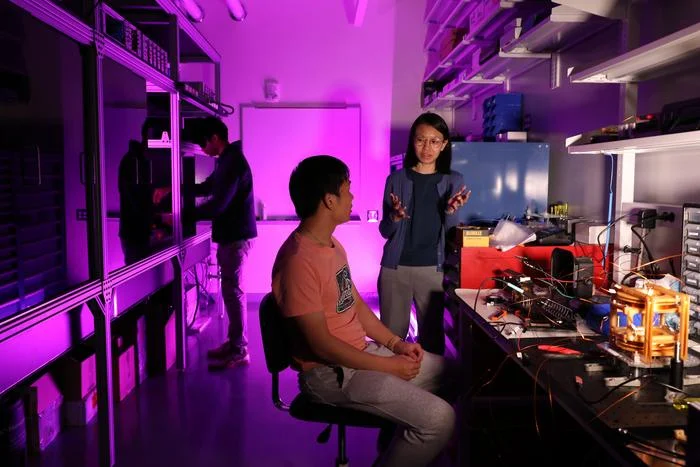Quantum software needs to develop in order to push the hardware already at a workable stage. And there are software firms around already servicing this demand

Unix To Tiny BASIC
Software will be key if quantum computers are ever to reach their potential. Early software like Unix and Tiny BASIC changed the game for the hardware it was designed for.
In many ways, just like in those salad days of computer science, we are at a similar point in 2020.
Software/cloud-based efforts Qiskit (IBM) and Azure Quantum (Microsoft) by the big hitters go hand-in-hand with the offerings from smaller startups: Software solutions Quasar by Beit, HQS’s QAD CLOUDbeta, QUBO by Jij Inc, Black Opal, Q-CTRL’s QC software package, Quantastica’s Qubit Toaster (ha-ha), Deltaflow.OS by Riverlane, and SoftwareQ’s Quantum++. These are just a handful of the dozens already out there. Many are still at the beta stages of development; a few, already providing technical solutions for their customers.
Opacity, an Australian startup based in Sydney and founded this year, is another to add to the growing list. Its software solution, called Quiver, ‘maps errors across a quantum computer as a whole, not just individual components.’

Tim Evans, founder of Opacity, and his team believe that:
‘Quantum computers will change everything, giving us answers to unsolvable questions.’
Physics, Not fidelities
The key to all this is Opacity’s philosophy: ‘physics, not fidelities’. To succeed the startup sees this stance as a way to solve some of the problems of marrying quantum hardware with the applications. Opacity will achieve this by engineering Hamiltonians.
But what the heck is a Hamiltonian?
According to a Quora post by Shreevant Tiwari, a senior software engineer at Bloomberg LP with a Ph.D. in materials science and engineering from Georgia Tech, a Hamiltonian is: ‘[…] a mathematical convenience that helps us solve a large class of problems in physics […]’.
Now, that’s simplifying it a little, but it gives you some sort of idea of what it does.

The startup’s Quiver software stack has a few clear objectives:
— to enable noise mitigation at the software level
— to inform future iterations of hardware design
— to characterize and mitigate errors, not only at the qubit level but across firmware, circuits and near-term algorithms
CEO Evans, an electrical engineer, applied mathematician and physicist, is a Ph.D. candidate in physics at the Australian Research Council Centre of Excellence for Engineered Quantum Systems (EQUS). His research encompasses theory and experiment as he works on Noisy Intermediate Scale Quantum (NISQ) devices. His specialties include ML, Quantum information/computation, Bayesian inference, and mathematics.
Opacity’s team is made up of a highly qualified cadre of a CSO, a CTO and COO, with expertise in quantum devices and condensed matter systems, product delivery and packaging tools designed specifically for quantum engineers and project management.
We are in the early days of software in the QC field, but it will be startups like Opacity that will lead the charge in developing viable products for the nascent market. Let’s hope they can achieve what they set out to do.















